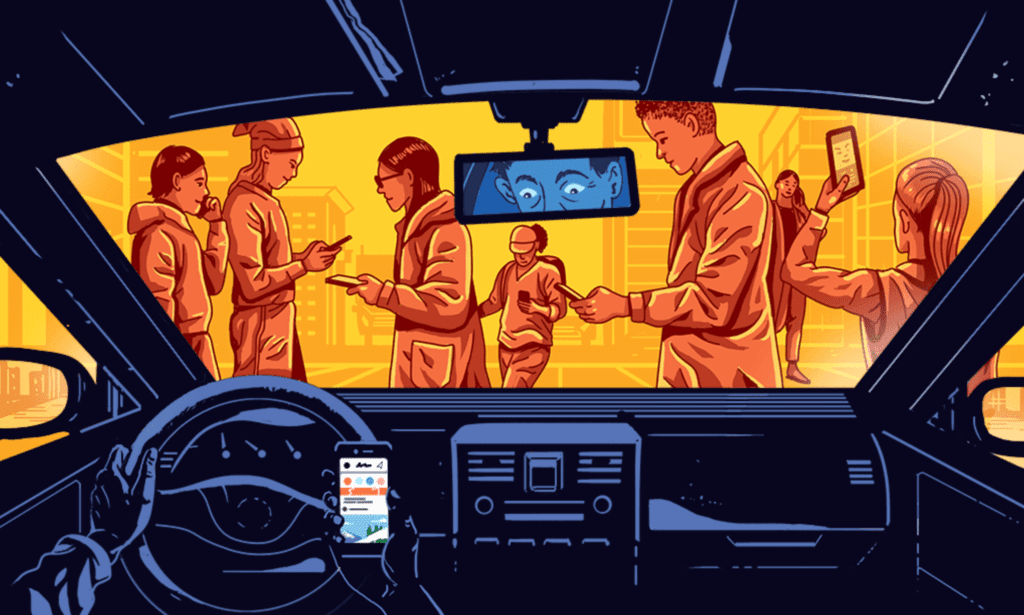The reality of dystopias is a cliche topic that is not given enough consideration. What really makes a dystopian novel interesting is the following paradox: the definition of dystopia is a repressive, unjust, and cruel version of reality, but reality is actually accurately reflected in those imagined distorted versions of the real world.
We’re all used to watching sci-fi movies where the main character looks around and only sees people looking down at their screens. Incorporate some “main character energy” yourself and look around you right now – isn’t that what you see too? And aren’t you actually just another person in the middle of a sea of people glued to their screens?
Living in a big city and taking the same route in the metro every day, one eventually realizes that when you look up from your phone screen and look at the people in the wagons of the train, as far as your vision can go, everyone is looking down at their screens – even you. As dystopian as that is and as scary as it looks, we still go back to our phones two minutes later to respond to a friend’s text or scroll through Instagram. Like in the dystopias, we end up recreating the same image. Like so many other people, we may have deleted Instagram and Youtube off our phones after watching the Social Dilemma, but a couple of months after, we were back to being an extra in a Black Mirror episode.

Having watched sci-fi movies in the early 2000s made us think that the future would be made of cyborgs and flying cars. We might look around now and think those were far-fetched predictions – but what is a smartphone but an extension of our arm? How many hours a day do you spend with a phone in your hand or a computer screen in front of you?
The reality of dystopia is not limited to technology; it goes as far as politics and societal behavior. Truth is, democracy is flawed in most countries in which it is present. This means, to put it simply, that the “government by the people, for the people” is not entirely true. There is only a small portion of society that has access to money, education, and privilege enabling them to access the political field in a much easier manner. Oftentimes, the last names of politicians who are currently in power are common to us because they come from a dynasty of politicians. This is not to enter into a conspiracy theory scenario. It’s simply an observation of how a cycle of privilege repeated through generations leads to somewhat repeated leaders throughout history. In other words, an elite with enough power to make decisions over the lives of the majority. Does that sound familiar?
An optimist could argue that we actually live in a utopia. Technology has brought benefits to the world, and regardless of its flaws, the rise and spread of democracy led to better living conditions around the globe. Either way, because change comes relatively slowly while we live fast-paced lives, we tend to overlook the enormous impact it has on the world. Can you picture scheduling a meeting with your classmates and only seeing the possibility of going to the Tower to physically meet up with them? How do you feel when a professor doesn’t let you use your computer to take notes?
With the power of hindsight, comparing the world as it was even 20 years ago to today, it’s impossible to neglect that early 2000s sci-fi movies weren’t that far away from reality.
Featured image by: freepik







